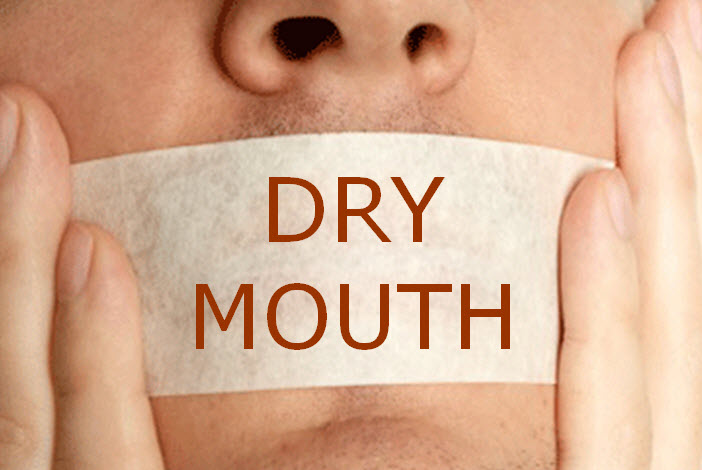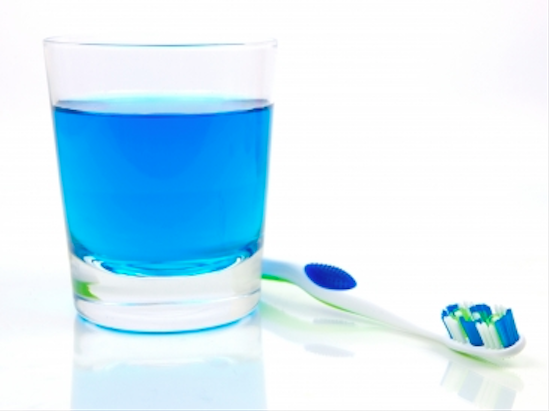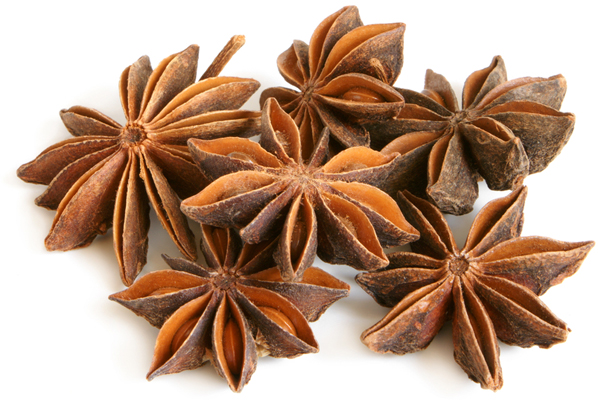 Dry mouth is also known as xerostomia. This is commonly caused when the body is not producing an adequate amount of saliva, making it difficult to speak properly. This can also lead to malnutrition or salivary gland dysfunction that can contribute to permanent disorders of the mouth and throat. Dry mouth can be caused as a side effect to medications like antihistamines, blood pressure medication, diuretics, NSAIDs, antidepressants and others. Radiations treatments around the head and neck, diabetes, salivary gland disease, autoimmune diseases or hormonal imbalances can also cause dry mouth to occur. Stress, anxiety, depression or dehydration also plays a role in leading to your mouth adequately hydrated. However, there're many simple dry mouth cures available, and below are some of the best.
Dry mouth is also known as xerostomia. This is commonly caused when the body is not producing an adequate amount of saliva, making it difficult to speak properly. This can also lead to malnutrition or salivary gland dysfunction that can contribute to permanent disorders of the mouth and throat. Dry mouth can be caused as a side effect to medications like antihistamines, blood pressure medication, diuretics, NSAIDs, antidepressants and others. Radiations treatments around the head and neck, diabetes, salivary gland disease, autoimmune diseases or hormonal imbalances can also cause dry mouth to occur. Stress, anxiety, depression or dehydration also plays a role in leading to your mouth adequately hydrated. However, there're many simple dry mouth cures available, and below are some of the best.
Dry Mouth Cure
- Keep oral hygiene. Your dentist will instruct you about the proper ways to brush your teeth and floss. Make a point of including these tips in your daily routine to ensure proper oral hygiene.
- Brush teeth with fluoride toothpaste. If you are having trouble with this your dentist may provide you with a prescription strength fluoride that can be used in addition to your standard toothpaste. Fluoride toothpastes can help encourage oral hygiene while encouraging a more comfortable atmosphere within the mouth.
- Choose a proper toothbrush.
 Also try to use a toothbrush with soft bristles and make a point of brushing before and after meals with a mouth rinse or plain water to help encourage moisture in the mouth.
Also try to use a toothbrush with soft bristles and make a point of brushing before and after meals with a mouth rinse or plain water to help encourage moisture in the mouth. - Use fluoride-based rinse or gel. Rinses that contain fluoride will also help encourage oral health. Your doctor can recommend an appropriate choice.
- Watch for oral candidiasis. Oral candidiasis or thrush can dry out the mouth. This is particularly common if you have erythematous thrush. Your doctor will be able to determine what type of thrush you have and prescribe adequate treatment.
- Drink fluids frequently. Sipping on small amounts of liquids like water can help prevent your mouth from getting dry. Keep a bottle of water handy to assist with this. However, avoid sipping on water too frequently as this can thin your oral mucus and make your symptoms worse. If you are worried about this, suck on ice chips, letting them slowly dissolve in the mouth instead of drinking.
- Take fluids while eating. Those that suffer from dry mouth should make a point of rehydrating while they eat. Make a point of washing each bite down with a sip of your beverage.
- Avoid caffeine, alcohol and tobacco. Caffeine can act as a mild diuretic, drying out the system. Alcohol will also dry out the mouth, as will smoking tobacco products so they should be avoided by people with these symptoms.
- Stop using mouthwashes with alcohol. Because alcohol has drying properties, using mouthwashes that contain this ingredient can make your symptoms worse.
- Have foods and fluids correctly. Try avoiding foods that are very spicy or salty as they can contribute to your issues. Keep foods moist by adding butter, gravy or broth. Try to eat foods cool or at room temperature to avoid irritating the mouth. Also avoid surgery or acidic foods and drinks.Fermentable carbohydrates, acidic beverages or sticky foods like potato chips, cookies, cum or candies can dry out the mouth when consumed too often.
- Try sugar-free salivary stimulants. Regularly using lozenges, mints or candies to simulate saliva is frequently recommended to manage oral dryness. However, stick with sugar free versions of these products that will not cause damage to the teeth. Sugar-free gum or candy can help stimulate saliva without causing damage to your teeth. Also look for products containing xylitol as this sweetener will not contribute to bacterial growth.
- Try OTC saliva substitutes. Saliva substitutes that contain hydroxyethyl cellulose or carboxymethylcellulose can be helpful in restoring your mouth to a comfortable state.
- Get a humidifier.
 Dry air can contribute to the dry feeling inside your mouth. Running a humidifier, particularly while you are sleeping, can help relieve some of your discomfort.
Dry air can contribute to the dry feeling inside your mouth. Running a humidifier, particularly while you are sleeping, can help relieve some of your discomfort. - Breathe through nose. Breathing through the mouth can cause it to become dryer.
- Address dry lips. People who suffer from dry mouth typically have dry or chapped lips as well. Apply an oil-based lipstick or balm to help prevent cracked lips and soothe dry lips that have become irritated. Vitamin E balms are also found to be effective in relieving these symptoms.
- Apply natural cures. In some cases home remedies may be applied that can help manage the symptoms of dry mouth. These can help encourage saliva production or fight off other issues like bacterial growth that may be contributing to your discomfort.
- Sugar. Mixing a teaspoon of salt, a half teaspoon of baking soda and a tablespoon of sugar into a cup of water along with a bit of citrus juice for flavor can create an elixir that will help restore electrolytes to the body. Drinking this mixture once a day or after vomiting, diarrhea or exercise can help you avoid dry mouth symptoms. Just avoid sugary candies and the like as these will promote decay within the mouth that can make your symptoms worse.
- Celery. Eating foods like celery that are waterlogged will help stimulate saliva production.
- Parsley. Parsley can help sweeten the breath, which can be helpful for those that notice that bad breath has accompanied their dry mouth symptoms. Parsley is also high in vitamins C, A, calcium and iron so you can get nutritional value out of consuming this substance.
- Aniseed.
 Chewing on aniseed can help rid you of bad breath. Keeping these handy when you eat can help you avoid many of the symptoms associated with dry mouth.
Chewing on aniseed can help rid you of bad breath. Keeping these handy when you eat can help you avoid many of the symptoms associated with dry mouth. - Fennel. Much like aniseed, chewing on fennel seeds is commonly recommended for those that have bad breath due to dry mouth.
- Cayenne pepper. This strong flavoring agent can cause the mouth to water. Adding a dash of cayenne to food will also help you pick up on the other flavorings in the dish, stimulating sweat glands, tear ducts and salivary glands to help you avoid dry mouth.
- Rosemary. Mixing a teaspoon of dry mint, a teaspoon of aniseed and a teaspoon of rosemary in two and a half cups of boiling water, allowing the mixture to steep and then draining out the herbs can create a soothing mouthwash that will help with your dry mouth.